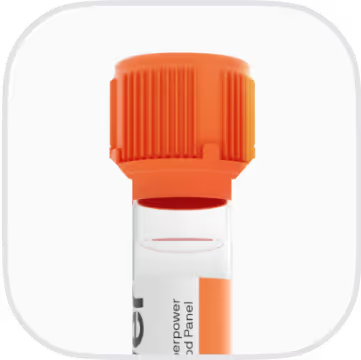What are IBD biomarkers
IBD biomarkers are measurable signals from your immune system and gut that reveal when and how much inflammation is present in Crohn’s disease or ulcerative colitis. They translate invisible intestinal activity into objective information your care team can track, reducing guesswork and complementing symptoms and scans. Blood tests reflect whole-body inflammation and its ripple effects: a liver-made alarm protein (C-reactive protein), the rate red cells settle when inflammation is active (erythrocyte sedimentation rate), shifts in white cells and platelets (leukocytes, thrombocytes), anemia and iron status (hemoglobin, ferritin), and nutrition status (albumin). Stool testing adds a gut-specific readout from neutrophils at the bowel wall (fecal calprotectin). Together, these markers help distinguish IBD from look-alike conditions, gauge disease activity, anticipate flares, guide treatment choice and dosing, and monitor healing—often reducing the need for urgent endoscopy. Biologically, they arise from three places: liver acute-phase responses, immune-cell products, and proteins leaking from an injured intestinal barrier. Watching their patterns over time shows whether inflammation is quieting or smoldering, enabling timely, targeted care that protects the bowel.
Why is blood testing for IBD important?
- Gauge gut inflammation and overall disease activity in IBD without invasive testing.
- Spot active flares early by rising CRP, ESR, CAR, and FAR levels.
- Clarify symptom cause by distinguishing inflammation from irritable bowel or noninflammatory pain.
- Guide treatment intensity by flagging higher CAR/FAR and low albumin as severity signals.
- Track response to therapy by following CRP, ESR, and albumin over time.
- Flag complications risk by low albumin suggesting malnutrition or protein loss from the gut.
- Protect fertility and pregnancy by keeping inflammation controlled and nutrition adequate.
- Best interpreted with fecal calprotectin, hemoglobin, and your symptoms for context.
What insights will I get?
Inflammatory Bowel Disease (IBD) blood testing provides a window into how inflammation is affecting your body’s core systems—immunity, metabolism, nutrient absorption, and even energy production. Chronic inflammation in IBD can disrupt these interconnected processes, impacting everything from cardiovascular health to cognitive function. At Superpower, we measure five key biomarkers: C-reactive protein (CRP), erythrocyte sedimentation rate (ESR), albumin, fibrinogen-to-albumin ratio (FAR), and CRP-to-albumin ratio (CAR).
CRP and ESR are markers of systemic inflammation. CRP rises quickly in response to inflammation, while ESR reflects more gradual changes. Both are commonly elevated during IBD flares, signaling active immune system engagement. Albumin is a major blood protein produced by the liver; low levels can indicate inflammation, poor nutrition, or protein loss through the gut, all of which are concerns in IBD. FAR and CAR are calculated ratios that combine these markers, offering a more nuanced view of inflammation and protein status.
When these biomarkers are within healthy ranges, it suggests that inflammation is controlled, the immune system is stable, and the body’s protein reserves are adequate—key factors for maintaining gut integrity and overall resilience in IBD. Shifts outside the expected range can signal increased disease activity or complications, reflecting how well your body is coping with the demands of chronic inflammation.
Interpretation of these results depends on context. Factors like age, pregnancy, recent infections, other illnesses, medications, and even laboratory methods can influence these markers. Results should always be considered alongside your clinical history and symptoms.







.avif)



.svg)





.svg)


.svg)


.svg)

.avif)
.svg)










.avif)
.avif)
.avif)


.avif)
.avif)




.svg)




.avif)


